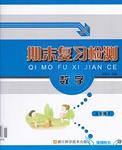题目内容
We all know that language can sometimes get lost in translation. But do you know that some facial may also be in cross-cultural situations?
According to a study by Glasgow University, Europeans look a person's whole face people from East Asia focus on the eyes. Researchers recorded the eye movements of 13 Westerners and 13 Easterners as they observed pictures of expressive faces. They were asked tothe pictures into the following categories: happy, sad, surprised, fearful, disgusted, angry, or neutral.
The team found East Asians focus much more attention on the eyes and also make a number of mistakes. Different from Europeans, they to have a more difficult time the difference between a face that looks fearful as opposed to surprised, and disgusted as opposed to angry.
"Westerners look at the eyes and the mouth , whereas Easternersthe eyes and neglect the mouth," said researcher Rachael Jack. "This means that Easterners have in telling apa![]() rt facial expressions that look similar around the eye region."
rt facial expressions that look similar around the eye region."
Jack said that the differences in eye movement reflected a culturalin the way people use their faces to express themselves. Easterners use the eyes more and the mouth .
The difference in the use of text message "emoticons" (表情符号) the idea. Easterners use the eyes to emotion, for example "^-^" for happy and "┬_┬" for sad. Westerners, , use the mouth, for example ":-)" for happy and ":-(" for sad.
The researchers said their results showed communication between people is much more than previously thought. When it communicating emotions across cultures, Easterners and Westerners can find themselves in translation.
A. expressions B. appearances C. features D. differences
A. interesting B. confusing C. outstanding D. surprising
A. across B. for C. on D. into
A. when B. as ![]() C. while D. if
C. while D. if
A. really B. mainly C. slightly D. nearly
A. make B. turn C. get D. put
A. small B. big C. fewer D. larger
A. need B. attempt C. tend D. intend
A. saying B. telling C. knowing D. judging
A. in a different way B. in equal measure C. in turns D. alternatively
A. favor B. approve C. find D. focus
A. difficulty B. ability C. possibility D. certainty
A. interest B. gap C. similarity D. concern
A. little B. least C. less D. more
A. supports B. opposes C. rejects D. counts
A. make B. create C. convey D. prove
A. therefore B. however C. although D. moreover
A. separated B. related C. expected D. complicated
A. comes to B. talks about C. turns to D. gets to
A. puzzling B. lost C. exciting D. upset
【小题1】A
【小题2】B
【小题3】A
【小题4】C
【小题5】B
【小题6】D
【小题7】D
【小题8】C
【小题9】B
【小题10】B
【小题11】A
【小题12】A
【小题13】B
【小题14】C
【小题15】A
【小题16】C
【小题17】B
【小题18】D
【小题19】A
【小题20】B
解析:
略

 品学双优卷系列答案
品学双优卷系列答案 小学期末冲刺100分系列答案
小学期末冲刺100分系列答案 期末复习检测系列答案
期末复习检测系列答案第三节:书面表达(满分25分)
假如你们学校“英语爱好者俱乐部”将对“良好饮食习惯”这一话题进行讨论。
请根据下列提示,用英语写一篇发言稿。
内容要点应包括:
|
部分同学的饮食习惯 |
良好的饮食习惯 |
个人看法 |
|
不吃早餐 爱吃零食 偏食 饮食过量 |
饮食多样化 饮食定时定量 |
重要性;有助于身体健康 |
注意:1.发言稿必须包括所有内容要点,可适当发挥;
2.发言稿开头与结尾已为你写好,不计入总词数;
3.词数:100左右.
4.参考词汇: 偏食 be particular about food 零食 snack
饮食多样化 have various healthy diets 有规则地 regularly
Dear friends,
As we all know, we are what we eat. Therefore, it’s very important for us to form healthy eating habits.
____________________________________________________________________________________________________________________________________________________________________________________________________________________________________________________________________________________________________________________________________________________________________________________________________________That’s all. Thank you!